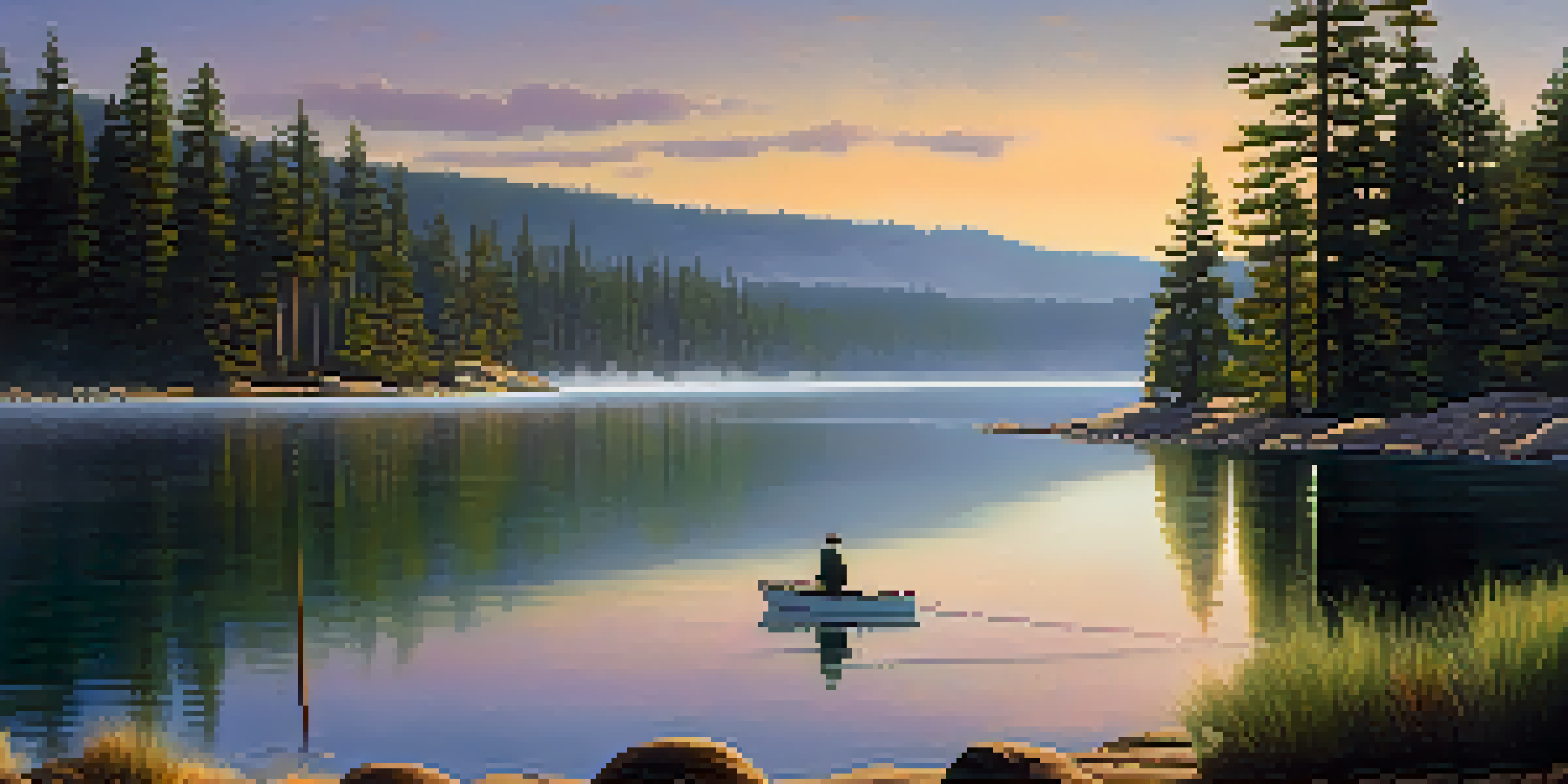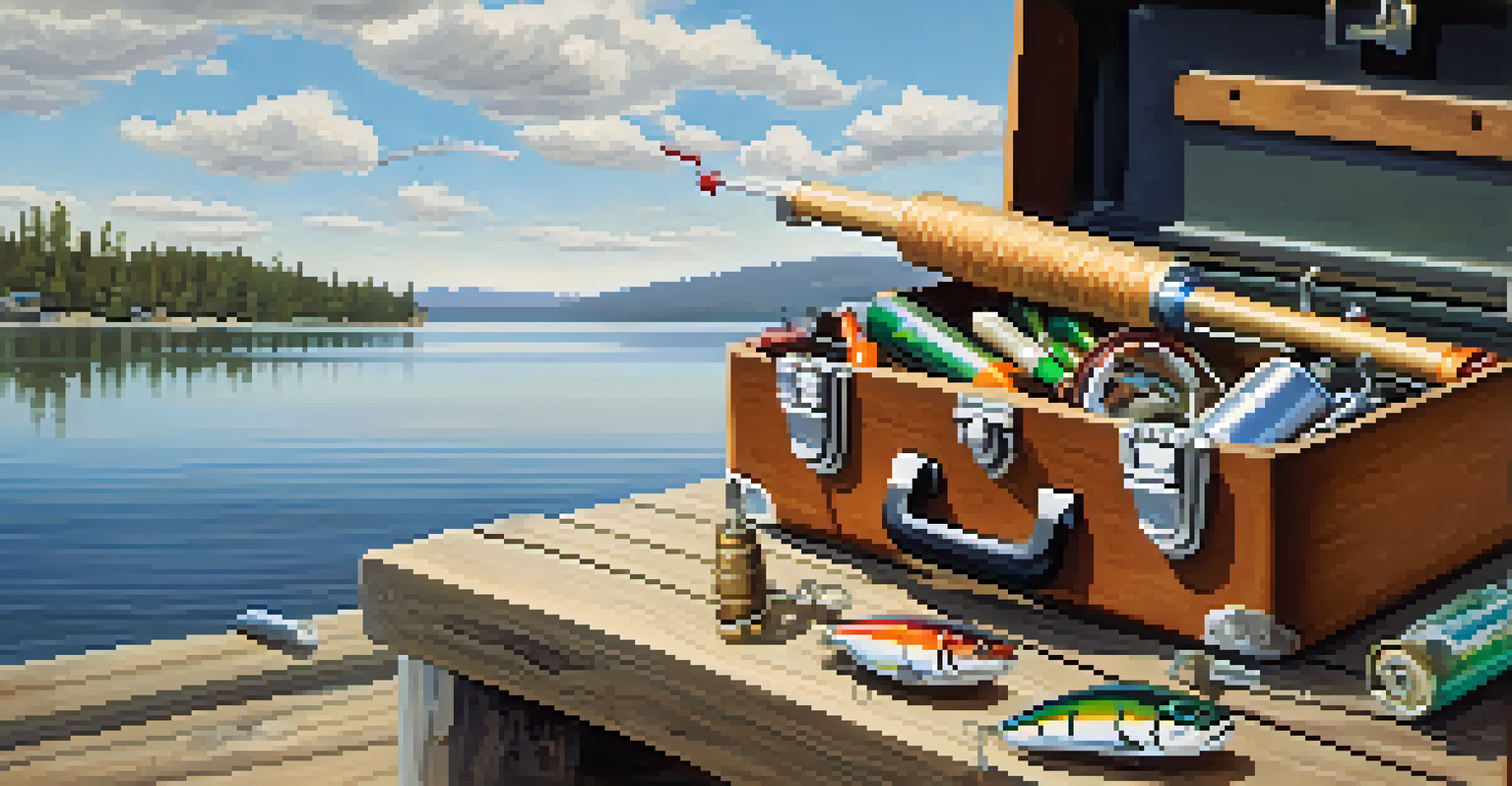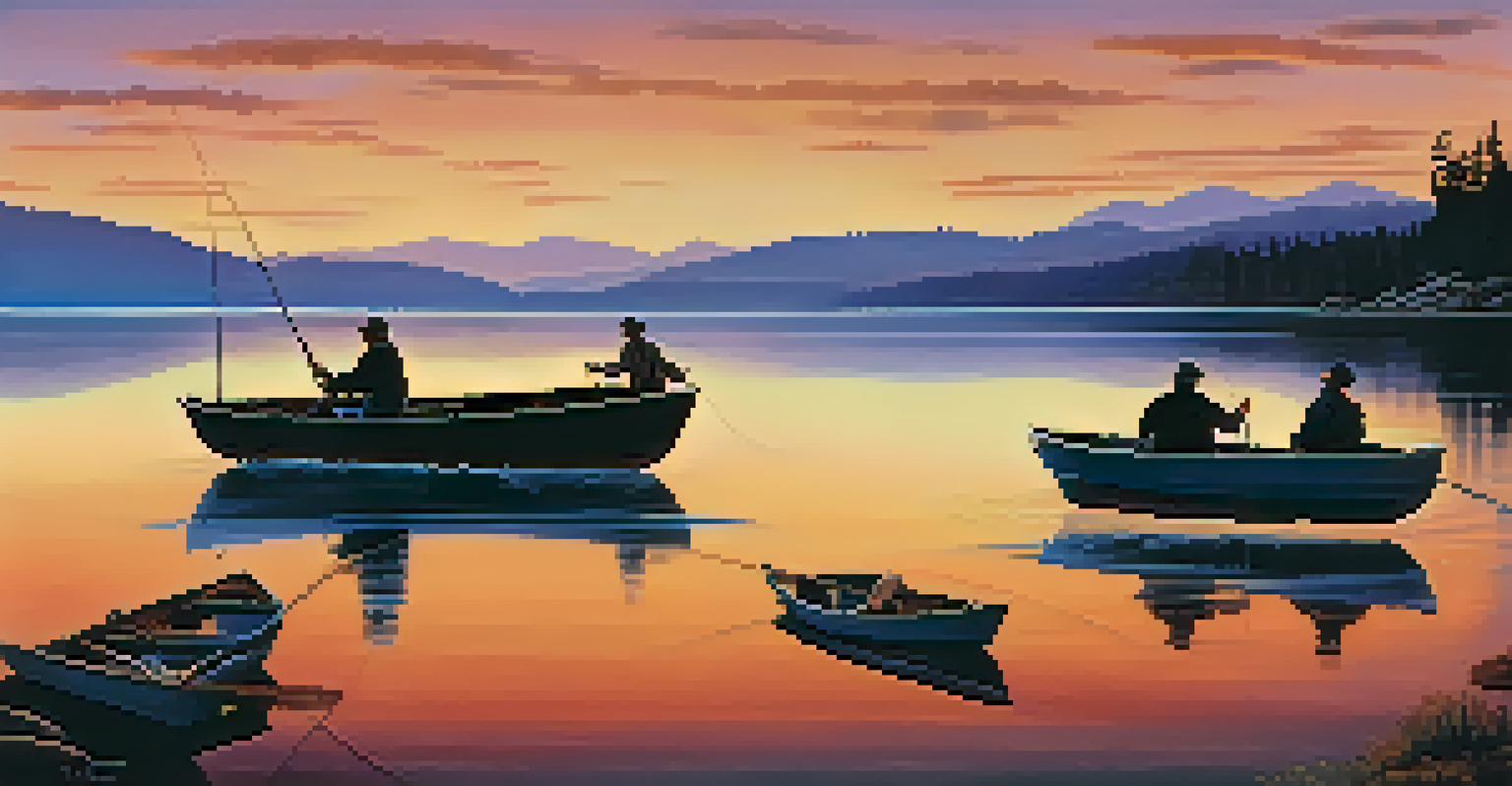Big Bear Fishing License Requirements: What You Need to Know

Understanding the Basics of Fishing Licenses in Big Bear
Before you cast your line in the pristine waters of Big Bear Lake, it's essential to grasp the basics of fishing licenses. In California, a fishing license is required for anyone aged 16 and older. This allows you to enjoy the diverse fishing opportunities available, from trout to bass, in the beautiful mountain setting.
Fishing is much more than fish. It is the great occasion when we may return to the fine simplicity of our forefathers.
There are different types of licenses available, including one-day, two-day, and annual options. Choosing the right one depends on how often you plan to fish. For casual anglers, a short-term license might suffice, while avid fishers will benefit from an annual license that offers unlimited access.
Always remember that fishing without a valid license can lead to fines and penalties. So, it's best to familiarize yourself with the requirements before you head out on your fishing adventure!
Who Needs a Fishing License in Big Bear?
In Big Bear, anyone over the age of 16 is required to have a fishing license. This regulation applies to both residents and non-residents alike, ensuring that everyone contributes to the conservation of California's natural resources. If you're planning a family fishing trip, be sure to plan ahead and secure licenses for all eligible family members.

There are exceptions to this rule, such as during California's Free Fishing Days when no license is required. These special days, often held in June and September, provide a great opportunity for newcomers to try fishing without the commitment of purchasing a license.
Fishing Licenses Are Essential
Anyone aged 16 and older must obtain a fishing license to fish in Big Bear, with options available for different durations.
For children under 16, a fishing license is not needed, but they must still follow the same fishing regulations as licensed anglers. This makes it easy for families to introduce kids to the joys of fishing without the added cost.
How to Obtain a Fishing License for Big Bear
Getting a fishing license for Big Bear is a straightforward process. You can purchase one online through the California Department of Fish and Wildlife's website, at local bait shops, or at designated sporting goods stores. This flexibility makes it easy to secure your license right before your fishing trip.
The charm of fishing is that it is the pursuit of what is elusive but attainable, a perpetual series of occasions for hope.
When purchasing online, you’ll need to provide some personal information, including your identification and residency status. Once completed, you can print your license or save it on your mobile device, making it easy to carry on your fishing excursion.
If you prefer the in-person route, don’t forget to bring your identification and any necessary payment. Local shops often provide helpful tips and information about the best fishing spots in the area, making it a win-win situation!
Fishing Regulations You Should Know
In addition to having a fishing license, it’s crucial to familiarize yourself with California's fishing regulations. These rules include specific limits on the number and size of fish you can catch, as well as designated fishing seasons for various species. This ensures sustainable fishing practices that protect the environment and fish populations.
For instance, certain areas of Big Bear Lake may have restrictions on fishing during spawning seasons. Understanding these regulations not only helps you avoid fines but also contributes to preserving the natural beauty and ecological balance of the lake.
Know the Fishing Regulations
Familiarizing yourself with local fishing regulations is crucial to ensure sustainable practices and avoid penalties.
Moreover, regulations can change, so it's wise to check for updates before your trip. The California Department of Fish and Wildlife provides resources to help anglers stay informed about current fishing regulations.
Where to Fish in Big Bear: Popular Spots
Big Bear Lake is a haven for fishing enthusiasts, boasting several prime fishing spots. The lake's shoreline offers various access points, with areas like the Holloway's Marina and the Big Bear Lake Solar Observatory being particularly popular. Each location provides unique fishing experiences, whether you prefer shore fishing or boat rentals.
In addition to the lake, nearby streams and rivers provide exciting fishing opportunities. For example, the San Bernardino National Forest offers access to smaller streams teeming with trout. Exploring these waters can lead to unexpected catches and delightful experiences.
Don't forget to ask local anglers or shop owners for their recommendations on the best spots and times to fish. Their insights can help you make the most of your fishing adventure in Big Bear!
Tips for a Successful Fishing Trip in Big Bear
Preparing for a successful fishing trip in Big Bear goes beyond just having a license. Make sure to pack essential gear like fishing rods, bait, and tackle. Bringing along a cooler for your catch and plenty of water and snacks will also enhance your experience on the lake.
Consider checking the weather forecast before your trip, as conditions can change rapidly in the mountains. Dressing in layers ensures that you’re comfortable whether it’s sunny or chilly. Additionally, early morning or late afternoon is often the best time to fish, as fish are typically more active during these hours.
Explore Popular Fishing Spots
Big Bear Lake offers various prime fishing locations, including marinas and nearby streams, perfect for both shore and boat fishing.
Lastly, don’t forget to enjoy the stunning scenery while you fish! Big Bear is known for its breathtaking views, so take a moment to appreciate the natural beauty around you. Fishing is not just about the catch; it’s also about the experience.
Understanding the Cost of a Fishing License
The cost of a fishing license in California can vary based on several factors, including the duration of the license and your residency status. For California residents, an annual license typically costs around $55, while non-residents may pay approximately $110 for the same duration. Short-term licenses are also available at a lower cost, making fishing accessible for casual anglers.
Keep in mind that additional fees may apply for special permits, such as those for fishing in certain protected areas or for specific species. These permits help manage fish populations and support conservation efforts, ensuring that fishing remains a sustainable activity for future generations.

Budgeting for your fishing trip should include not only the license but also gear, bait, and any rentals you might need. By planning ahead and understanding the costs involved, you can enjoy a worry-free fishing experience in Big Bear.